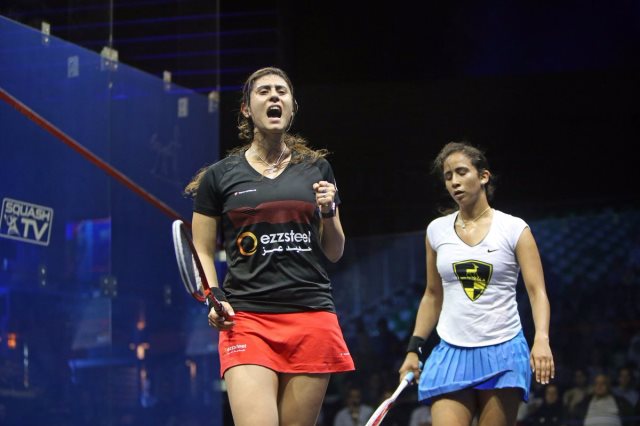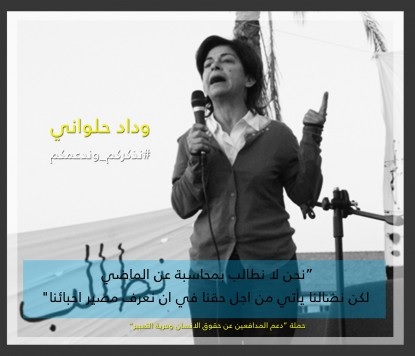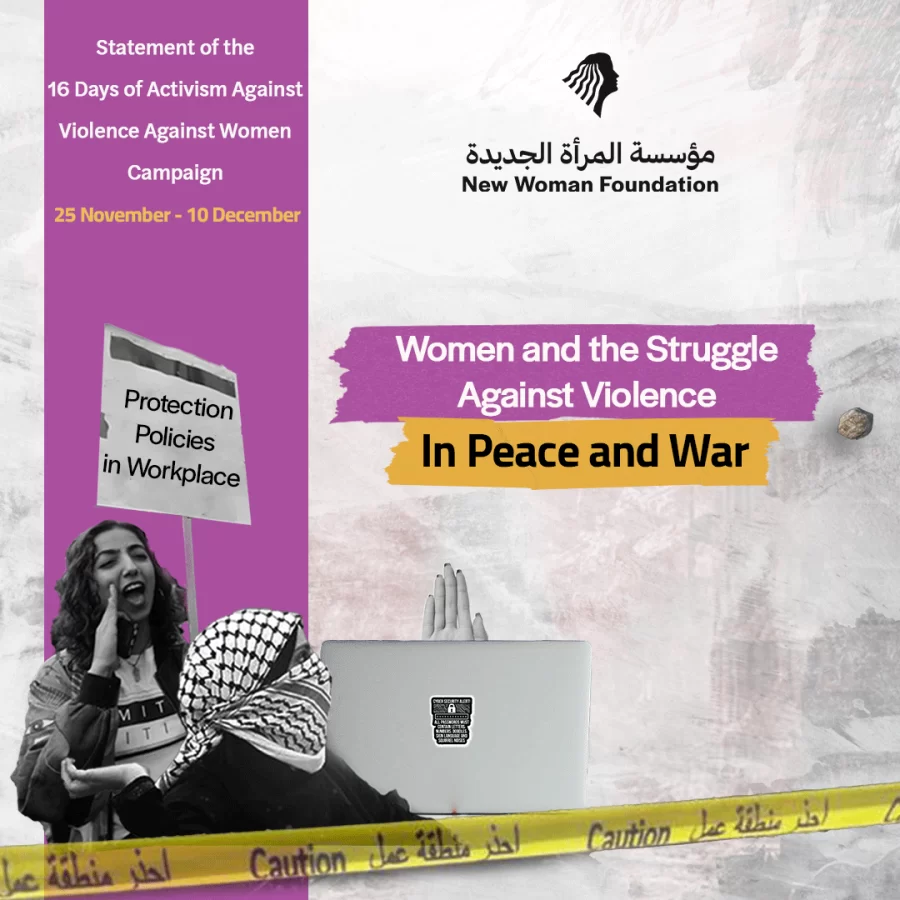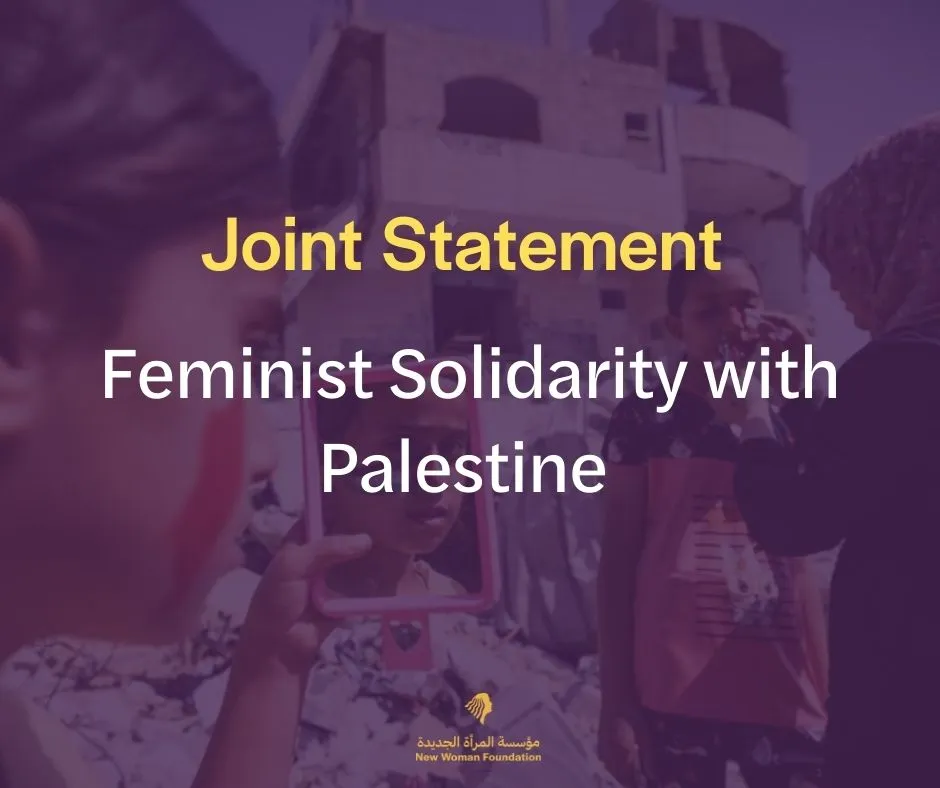The Arabic Network for Human Rights Information (ANHRI), Maharat Foundation, and the Gulf Centre for Human Rights, in cooperation with IFEX, chose the prominent Lebanese human rights defender Wadad Halawani to be the Defender of Human Rights and Freedom of Speech for September 2017, as part of the campaign “Supporting Human Rights Defenders and Freedom of Expression.”
Wadad Halawani is a civil activist, who worked on the issue of kidnapped and the disappeared during the civil war in Lebanon, and she is currently the head of the Committee of the Families of Kidnapped and the Disappeared in Lebanon. Halawani was born in Tripoli (North Lebanon). She joined the Faculty of Literature in Beirut, and two years later she transferred to the Faculty of Education in 1971. Her husband Adnan Halawani was kidnapped in 1982 from their home in Ras El Nabeh, Beirut. Since then, she has been fighting to know his fate.
Halawani started her activism with an ad on the radio, through which she called the families of kidnapped to an introductory meeting in 1982; the meeting was successfully held, then Halawani launched the NGO Committee of the Families of Kidnapped and the Disappeared in Lebanon, which families of victims started to join. The committee is formed from women who are wives, mothers, sisters, and daughters of those who were kidnapped or disappeared during the war.
Halawani succeeded in unifying a large number of families in this framework despite their background, religious, and cultural diversity, and also despite the parties responsible for kidnapping their children and family members. Through the various campaigns, the Committee of the Families of Kidnapped and the Disappeared in Lebanon was able to make the individual cases into a national cause that is still active today.
According to Halawani, the authorities didn’t take the issue of kidnapped family members seriously after the war was over. In the year 2000, the Lebanese authoritiescreated a fact-finding committee which issued a report proving that none of the kidnapped people were found alive, but were only found in mass graves in Mar Metr, Tahwita, the graves of martyrs in Hurj Beirut, and in the sea.
Halawani recalls that day and how she went to the hospital to support the mothers in the emergency rooms. “The authorities thought that they can buy our silence with this report, but maybe they forgot that bodies don’t disappear after death; if such a report was issued in any country other than Lebanon, demonstrations would have started like the case of Latin America, Bosnia and Europe after the war.” She added, “That report was a series of one procrastination after another among official committees, laws and lame promises.”
Halawani went through many confrontations with the Lebanese authorities especially in 1995 with the issuance of the law about the process for proving the death of disappeared that allows their families to proclaim death to the spiritual courts. Thus two lawsuits were filed by the committee in 2009 to make sure there are mass graves in the properties of Greek Orthodox Archdiocese in Beirut and the Makassed Philanthropic Islamic Association, as a prelude to determine their place and provide security measures.
In 2014, the Shura Council issued a non-appealable decision that grants rights for the families of the disappeared to be informed about the complete investigations conducted by the fact-finding committee that was formed in 2000 to investigate the fate of disappeared and kidnapped. This decision included all disappeared and kidnapped in Lebanon and Syria, and it was based on the request presented by the Committee of the Families of Kidnapped and the Disappeared in Lebanon, and the NGO Support of Lebanese in Detention and Exile (SOLIDE) in 2009.
This decision was considered a success for the activism of Halawani and the families of disappeared and kidnapped during the civil war, since this decision promoted the right to access information and transparency that can assist in finding thousands of disappeared during the civil war. This decision is also considered unique because it respects the Human Rights Charter through highlighting the right of the families to know the fate of their children and family members, since blocking such information is considered as torture against these families.
Halawani considers that fighting for this issue is fighting towards human rights in Lebanon, protecting freedom of expression, and saving the dignity of parents and their right to live within a stable family. Halawani emphasises two major requests: to form a new national fact-finding committee to discover the fates of the kidnapped and the disappeared, and to form a baseline data for DNA by saving the biological samples of the parents and base it on the samples gathered by the International Red Cross that started this process a year ago. Halawani adds, “We are not asking to hold any one accountable for the past, but our fight is to fulfill our right to know the fate of our loved ones.”
The campaign “Supporting Human Rights Defenders and Freedom of Speech,” that was launched in February, chooses every month to highlight a case of a human right defender. Tunisian journalist Naziha Rjiba (Om Zied) was chosen as the human right defender for February, then blogger Ahmed Mansoor from UAE was chosen as the human right defender for March, lawyer Gamal Eid from Egypt was the human right defender for April, Hanaa Edwar from Iraq was chosen as the human right defender for May, the three journalist from “Azamn” newspaper in Oman – Ibrahim Al-Maamari, Yousef Al-Haj, and Zaher Al-Abri– were chosen as human right defenders for June, the Moroccan journalist Ali Anouzlawas the human right defender for July, and the activist Jamil Dakwar from Palestine was the human right defender for August.
Gulf Center for human rights





